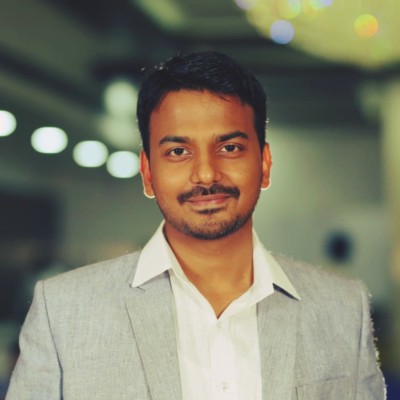News #27
German Chancellor Fellow Mrinal Madas researches sustainable urban development at Fraunhofer ISE
How can Indian cities be decarbonized through renewable energies and modern energy system technology? What experiences from Europe can possibly be transferred? This is what Mrinal Madas from the Deutsche Gesellschaft für Internationale Zusammenarbeit (GIZ) GmbH in New Delhi is currently researching as a guest scientist at the Fraunhofer Institute for Solar Energy Systems ISE. The business manager and engineer has been awarded a German Chancellor Fellowship by the Alexander von Humboldt Foundation for prospective leaders from India.

During his 12-month research stay, Mrinal Madas will be working on the topic “Decarbonizing Indian Cities: Mainstreaming ‘Low-Carbon Energy’ Development Using the Experiences from Germany”. “Due to the relatively short time available, I am concentrating on aspects that I can continue to work on after my return to India,” says Mrinal Madas, who works at GIZ as an advisor on energy issues and sustainable cities. His work focuses on the further development of projects under the funding programs for sustainable energy and development and the implementation of energy technologies that are particularly important for India including: Energy models, building-integrated photovoltaics, smart inverters, agrivoltaics and hydrogen.
“I chose Fraunhofer ISE because of the vast experience the institute has gained in the field of sustainable urban development and technologies across various countries,” explains the scholarship holder. The experience that Germany and the EU have gained with programs such as the “Net zero cities” program is also valuable for India: “Of course, you have to adapt these approaches to Indian conditions considering the local capacities, priorities and requirements.” The Indian government is currently implementing a “solar cities” programme in which 100 cities are to be decarbonized with photovoltaics and other RE technologies. Using the experiences from European programs, Mrinal aims to develop a framework that will be useful in establishing a cohort of sustainable cities in India. During his stay, by leveraging existing programs in India and Germany, Mrinal aims to develop a network and improve cooperation between Indian and European stakeholders on the topics of sustainable energy and urban development.
Over the past ten years, India has experienced an upswing in renewable energies in terms of training, jobs and the installation of photovoltaic systems. Now the country also wants to invest in the production of renewable energy technologies (photovoltaics, hydrogen, batteries etc.) in order to become less dependent on exports.
“It's an exciting time right now, many new companies are emerging in the renewable energy sector and the government is supporting this change. You get the feeling that you can really make a difference, even if it sometimes takes time to see results,” enthuses Mrinal Madas.
He also used his stay in Germany to make contacts not only with other Humboldt Fellows, but also with research institutions and energy experts.
The Federal Chancellor Scholarship supports university graduates with initial leadership experience from Brazil, China, India, South Africa and the USA. The target group is prospective decision-makers, multipliers and initiators from a wide range of fields, including politics, public administration, business, society and culture. The scholarship holders spend twelve months working on a project in Germany that not only serves their career development but is also socially relevant and has a lasting public impact. Up to ten Federal Chancellor Fellowships are currently awarded each year under the patronage of the Federal Chancellor and funded by the Federal Foreign Office.
Downloads
Last modified: